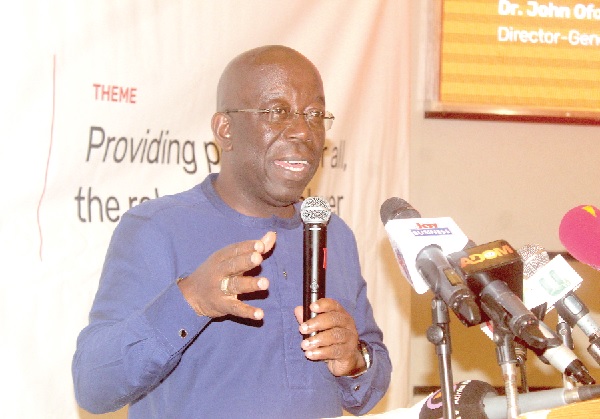
SSNIT assures pensioners of regular payments despite DDEP
PENSIONERS under the Tier One Pension Scheme run by the Social Security and National Insurance Trust (SSNIT) will continue to receive their monthly benefits despite the government’s intention to rope in pension funds under the second round of the Domestic Debt Exchange Programme (DDEP).
Allaying the fears of contributors to the SSNIT scheme about a potential disruption in their benefits, the Director-General of SSNIT, Dr John Ofori-Tenkorang, who gave the assurance, said the government had tabled a new offer with better terms for pension fund managers and indicated that SSNIT intends to subscribe to the bonds.
While admitting that SSNIT’s fixed income would be partly affected under a DDEP, he also noted that the Trust would ensure it had enough liquidity to pay pension benefits by relying on contributions and other investment incomes of SSNIT.
Dr Tenkorang gave the assurance in an interview shortly after a SSNIT/Employers forum in Accra on Tuesday.
The breakfast meeting was on the theme, “Providing pension for all, the role of the employer”.
The forum, the fourth to be held, is part of a grand scheme by SSNIT to interact with its stakeholders, share ideas and also use the platform to educate them on new initiatives meant to enhance the Tier One Pension Scheme.
Pension funds
Finance Minister Ken Ofori-Atta, announced the government's plans to restructure pension funds and exchange debt in the energy sector as part of efforts to manage the country's debt when he laid the mid-year budget review in Parliament on July 31.
The pension funds were earlier exempted from the DDEP but the government has made a U-turn, offering new terms to pension fund managers, in a bid to complete its domestic debt operations.
Mr Ofori-Atta clarified that although pension funds were exempted from the main DDEP, the government is still engaging with them on possible solutions.
“We believe that all this is temporal. We will be back to trend in the next year or a couple of years, but I would like to assure our contributors that we will keep the faith with them and make sure that when their pensions are due, we will pay,” he said.
The meeting was to serve as a platform to provide feedback for the trust and to help strengthen the trust’s relationship with employers.
Dr Ofori-Tenkorang noted that the compliance rate was growing steadily with a current rate of 76 per cent.
He said the active contribution rate had grown from 1.4 million to 1.9 million out of the four million people in its database.
He added that since the launch of the Self-Employed Enrolment Drive (SEED) to expand SSNIT’s social security scheme to cover self-employed persons, over 40,000 self-employed people had registered, adding: “We are seeing good growth in that area”.
Regarding retrievals through court processes, he said out of the 2,272 cases filed in court, the Trust had been able to retrieve GH¢132 million through prosecutions as of June 2023.
Voluntary
The SSNIT D-G noted that retrieving sums of money through the Court was, however, more expensive than getting everyone on board to pay their contributions voluntarily.
“We can get to a point where employees will look at SSNIT and guard it generously for employers to see that SSNIT is playing a key process in retirement planning portfolio.
“If human resource departments take the time to explain all the benefits of pensions to employees, particularly the contribution from the employer side, they’ll look at the employer differently and appreciate how much they do for them,” he said.
Dr Ofori-Tenkorang entreated employers to take education about what SSNIT has to offer their employees seriously to get them to take an active interest in the scheme.